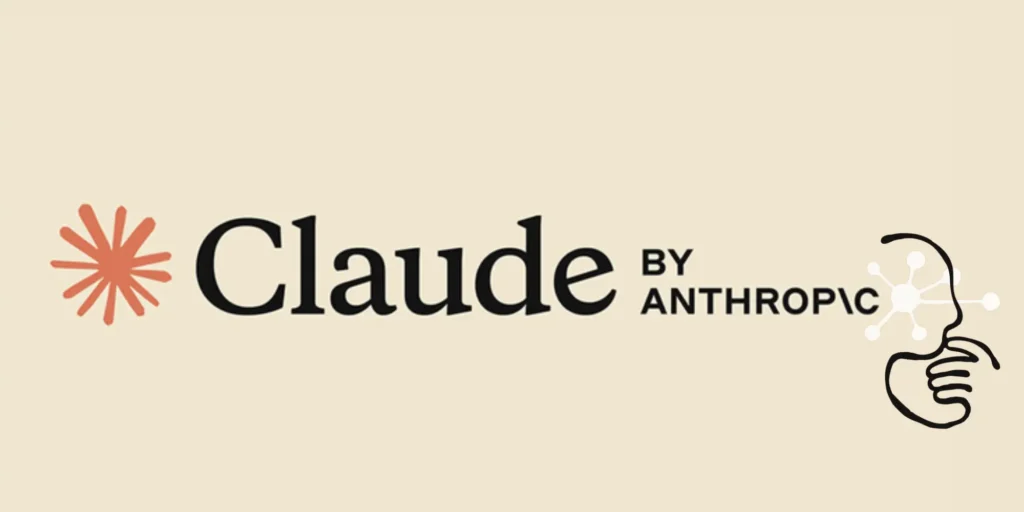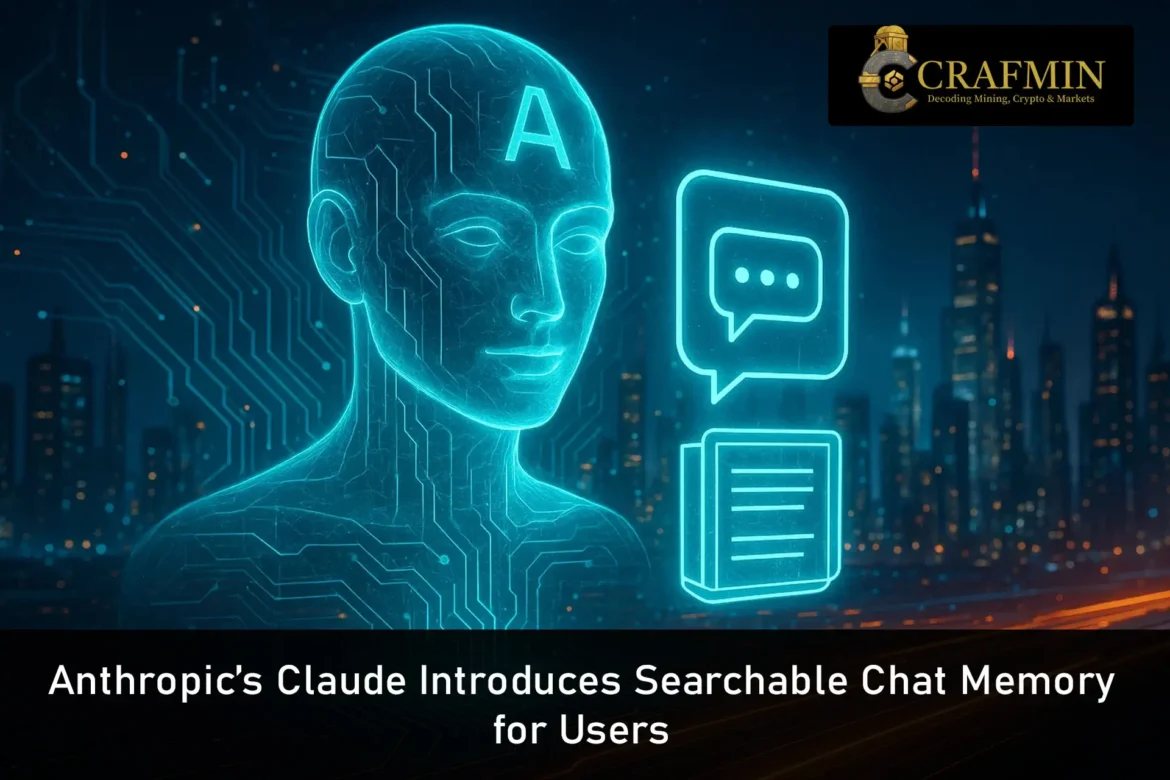Anthropic has added a memory feature to its Claude chatbot, helping users find and summarise past conversations. This is a web-and-desktop-and-mobile application accessible to Max, Team, and Enterprise subscribers.
Users must manually activate this feature from the profile settings. Whenever Claude is prompted to, it will recall earlier conversations; there is no automatic “background” profiling occurring.
That way, it perfectly offers a regulated and privacy-based approach toward the continuity of chats. This rollout is a huge update for professionals engaged in long-term projects.
Now those projects won’t involve redundant context setting, allowing smooth transitions among work sessions.

Anthropic adds memory to the Claude chatbot for recalling and summarising past chats.
Why does the feature matter?
This update aids workflow efficiency by keeping the relevant past information available and yet not redundant. Long-term tasks can proceed without retracing prior details.
Professionals can resume a paused project with little disruption. Claude, for example, can summarise the discussions earlier in the month after a break.
The feature also helps reduce clutter in the digital space. Rather than scrolling through past threads, one can get exact info in a second.
And this fits the growing demand for AI tools that combine capability with user privacy.
How does the toggle system work?
The feature being initiated is straightforward indeed. Users navigate to Settings, find “Search and reference chats,” and toggle the switch on.
Once activated, conversations such as “Show what we discussed about budget forecasts” become possible. Unless filtered by project or topic, Claude will perform the search across all chat history.
Users may remove a conversation to delete it from search results. The system does not ensure permanent storage of information unless a request is made by the user. This opt-in design engenders a degree of trust while being useful.
Claude only accesses chat history when asked
In contrast to ChatGPT’s persistent memory, Claude does not allow for the building of ongoing user profiles. When past conversations are needed, the chatbot produces them for the user.
This curtails any automatic data processing, something attractive to privacy-conscious organisations. Some would argue that, with less convenience, a finer point of governance rests on its side-
This shall allow the users to be properly in control of the AI’s recall ability. Such an approach would be most attractive to enterprise customers with severe data handling requirements.
What do users say about the feature?
On Reddit, feedback surfaced. “Which means no more re-explaining context or hunting through old conversations,” one user stated.
Another user wrote: “I think I can ditch my ChatGPT Pro subscription then.” This giveaway is an interior of productivity users who are greatly interested in the matter.
Some have even hinted at ditching existing subscriptions in favour of the on-demand memory that Claude facilitates.

User says Claude’s new memory could replace their ChatGPT Pro subscription.
Releases are tier-limited for now
Currently, it is a feature with Max, Team, and Enterprise plans only. Anthropic is phasing it out, with a priority on professional and organisation-related use cases.
This strategy somewhat mimics product launches in the past, where premium users were closely involved.
It is expected to be made available for other plans later this year. Anthropic sees fit to test some advanced features with higher-paying subscribers before wider rolling. This helps with refinement based on early user feedback.
Market Impact and Investor Outlook
The Claude memory feature brings forth a stronger position for Anthropic in its bid to be one of the leading AI assistants. It is, perhaps, a better privacy-controlled alternative to OpenAI’s ChatGPT memory model.
Investors may feel there is adoption growth potential from enterprises. Explicit data recall may be of interest to heavily regulated industries, like finance and healthcare.
With an intensifying competition in AI platforms, privacy features that stand out may become make-or-break in acquiring a client.
Also Read: Nadcab Labs Launches Next-Gen AI Crypto Wallets
Shaping the Future of AI Memory
The launch of this searchable memory feature for the Claude AI assistant represents a significant milestone in the field of AI assistant development. The user’s consent is required in its design, affording greater data protection and alleviating privacy concerns common with persistent memory models.
Hence, memories can be generated on demand from past conversations, greatly enhancing productivity, especially for professionals who work on long-term or complex projects.
Currently limited to Max, Team, and Enterprise, this phased rollout underscores Anthropic’s approach to introducing features first to its premium subscribers for refinement.
As competition in the AI space heats up, privacy-oriented innovations like these may well become critical differentiators.
Executed right, this new feature can become an enabler for enterprise adoption and entice users to switch away from the alternate always-on type of memory.

